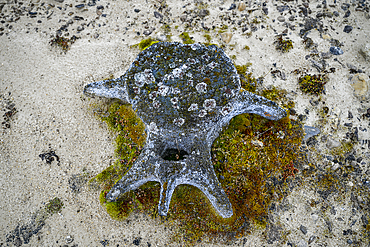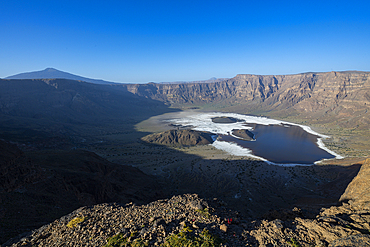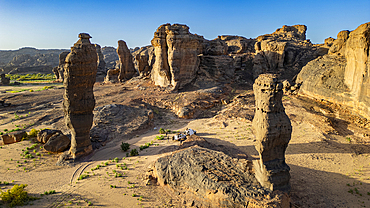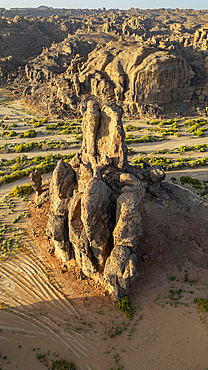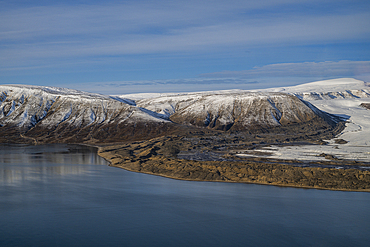Results
18 results found
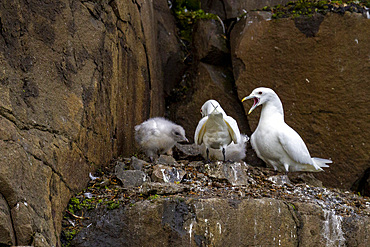
A newly discovered ivory gull (Pagophila eburnea) breeding colony on Alexander Island in Franz Josef Land, Russia, Eurasia
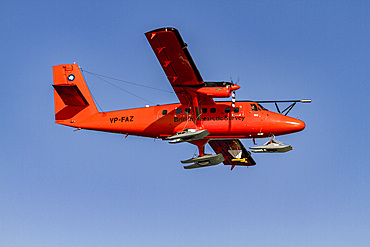
British Antarctic Survey (BAS) research plane operating in the Gullet, near Rothera Station near the Antarctic Peninsula, Polar Regions
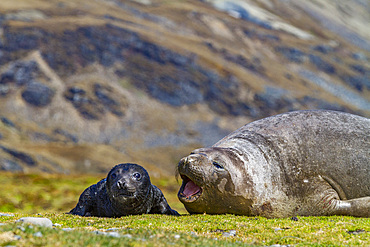
Female southern elephant seal (Mirounga leonina) with newborn pup on the beach in Stromness Bay, South Georgia Island
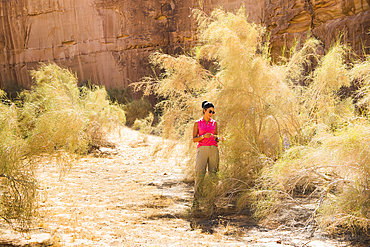
Rana El Zein, Deputy Director at AFALULA, and White saxaul (Haloxylon persicum), Sharaan Nature Reserve, AlUla, Medina Province, Saudi Arabia
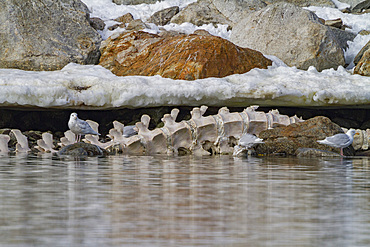
Adult fin whale (Balaenoptera physalus) carcass in Holmabukta off the northwest of the Svalbard Archipelago, Norway
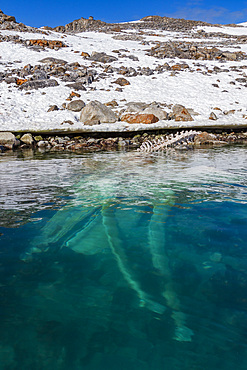
Adult fin whale (Balaenoptera physalus) carcass in Holmabukta off the northwest of the Svalbard Archipelago, Norway
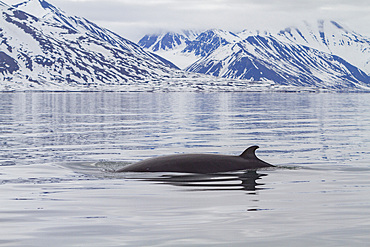
Adult common (northern) minke whale (Balaenoptera acutorostrata) sub-surface feeding in the Svalbard Archipelago, Norway
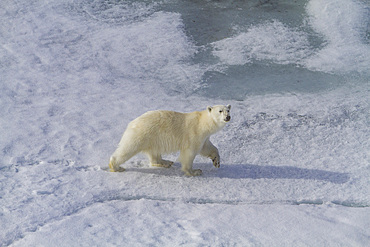
A curious young polar bear (Ursus maritimus), approaches the ship on Spitsbergen in the Svalbard Archipelago, Norway
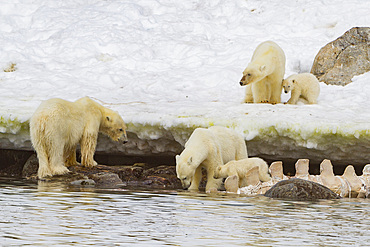
Two mother polar bears (Ursus maritimus) with cubs of the year watch a male bear feeding on a fin whale carcass in Svalbard, Norway
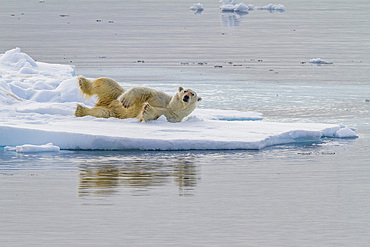
Adult polar bear (Ursus maritimus), on multi-year ice floes off the coast of Edgeoya, Svalbard, Norway
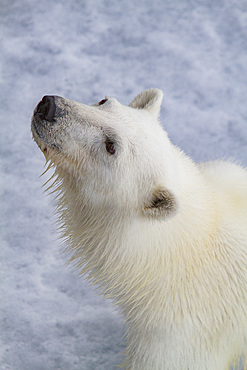
Young curious female polar bear (Ursus maritimus), on fast ice near Hinlopen Strait in the Svalbard Archipelago, Norway
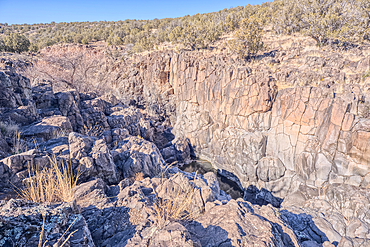
Dry waterfall cliffs, Johnson Canyon between Bainbridge Steel and Stone Dams near Ash Fork, Kaibab National Forest, Arizona, United States of America
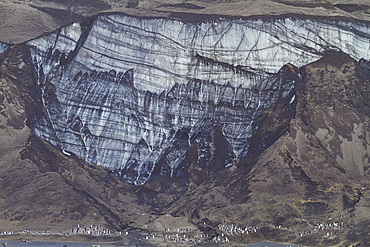
Chinstrap penguin (Pygoscelis antarctica) breeding colony at Baily Head on Deception Island, Antarctica, Southern Ocean, Polar Regions
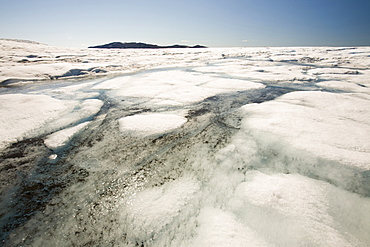
Melt water on the Greenland ice sheet which is melting at an unprecedented rate due to human-induced climate change, near Camp Victor north of Ilulissat, Greenland, Polar Regions
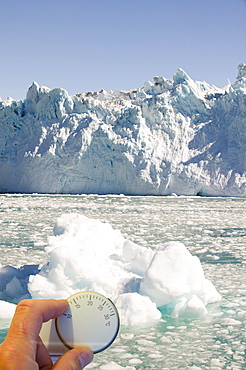
The snout of the Eqip Sermia glacier at Camp Victor north of Ilulissat on Greenland's west coast, Polar Regions
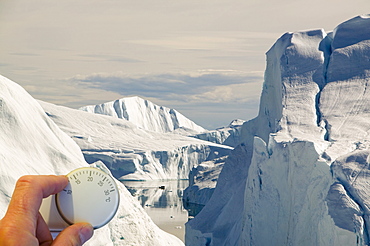
An Inuit fishing boat sails through icebergs from the Jacobshavn glacier (Sermeq Kujalleq), Greenland, Polar Regions
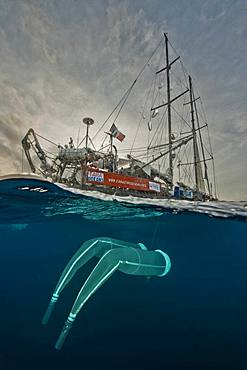
Tara Oceans Expeditions - May 2011. Tara with deployed plancton nets. On "station", the boat is drifting without engine or sails. Tara Oceans, a unique expedition: Tara Oceans is the very first attempt to make a global study of marine plankton, a form of sea life that includes organisms as small as viruses and bacterias, and as big as medusas. Our goal is to better understand planktonic ecosystems by exploring the countless species, learning about interactions among them and with their environment. Marine plankton is the only ecosystem that is almost continuous over the surface of the Earth. Studying plankton is like taking the pulse of our planet. Recently, scientists have discovered the great importance of plankton for the climate: populations of plankton are affected very rapidly by variations in climate. But in turn they can influence the climate by modifying the absorption of carbon. In a context of rapid physico-chemical changes, for example the acidification observed today in the world's oceans, it is urgent to understand and predict the evolution of these particular ecosystems. Finally, plankton is an astonishing way of going back in time ? a prime source of fossils. Over the eons, plankton has created several hundred meters of sediment on the ocean floors. This allows us to go back in time, to the first oceans on Earth, and better understand the history of our biosphere. More than 12 fields of research are involved in the project, which will bring together an international team of oceanographers, ecologists, biologists, geneticists, and physicists from prestigious laboratories headed by Eric Karsenti of the European Molecular Biology Laboratory. Galapagos
